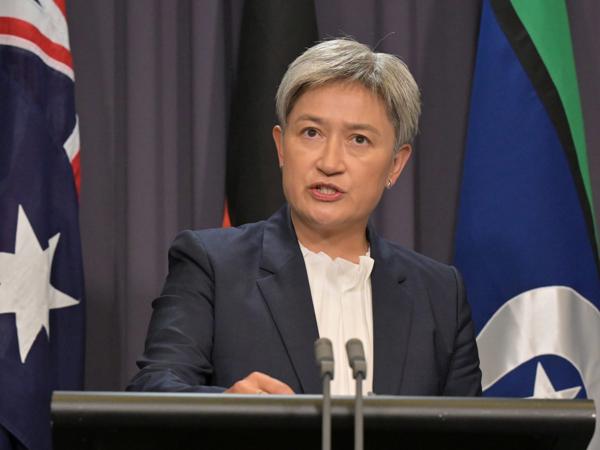Penny Wong Highlights Unlawful Settlements and Sanctions on Israeli Officials
In a recent statement, Australian Foreign Minister Penny Wong openly criticized Israeli National Security Minister Itamar Ben-Gvir and Finance Minister Bezalel Smotrich, labeling their ongoing support for what she termed an "unlawful and violent Israeli settlement enterprise" as unacceptable. Wong's comments come in light of a significant diplomatic move by Australia and four other allied nations, including Canada, New Zealand, Norway, and the United Kingdom, to impose sanctions on these Israeli officials due to their incitement of violence against Palestinians in the West Bank.
The sanctions, though not detailed extensively, could restrict entry for Ben-Gvir and Smotrich into the territories of these allied nations and potentially involve the freezing of their foreign-held assets. The official statement from the five countries condemned the extremist rhetoric from these officials, which they argue encourages violence, human rights abuses, and fundamentally undermines efforts toward a peaceful resolution like the two-state solution.
"Settler violence is often incited by rhetoric advocating for the forced displacement of Palestinians," the statement emphasized. There is a growing concern over the humanitarian crisis affecting civilians in both the West Bank and Gaza, with the allies asserting that Israel’s actions cannot be viewed in isolation from the broader suffering experienced by the Palestinian population.
Support and Opposition to Sanctions
While the sanctions reflect a firm stance against the actions of Ben-Gvir and Smotrich, U.S. Secretary of State Marco Rubio has publicly condemned these measures, arguing they do not aid ongoing efforts to achieve a ceasefire between Israel and Hamas. Rubio reiterated that Hamas is a terrorist organization responsible for numerous atrocities and insisted that the focus must remain on them, rather than on Israeli officials.
On the other hand, British Foreign Secretary David Lammy noted the unprecedented extremist language employed by Ben-Gvir and Smotrich and encouraged the Israeli government to disavow such statements. The gravity of the situation is profound; recent reports indicate that over 80 people were injured in the West Bank during Israeli military operations aimed at rooting out perceived threats.
Escalation in Violence
The concerns raised by Wong and the allied nations are not unfounded. There has been a staggering rise in violent incidents in the West Bank, with reports stating that more than 1,900 attacks against Palestinian civilians have occurred in the past year alone. These actions have exacerbated the longstanding tensions in the region, leading to calls for accountability and a reevaluation of support for hardline Israeli leaders.
Notably, Ben-Gvir recently claimed that Gaza would face total destruction, heightening fears among civilians and further illustrating the volatile climate. In response to the classified and public outrage against the sanctions, Israeli Foreign Minister Gideon Saar dismissed them as "outrageous," signaling the potential for heightened diplomatic tensions as Israel contemplates its retaliation.
The Humanitarian Crisis in Gaza
The ongoing war in Gaza continues to have tragic implications for Palestinian families. Reports indicate significant casualties in and around humanitarian aid distribution hubs within Gaza, with countless residents struggling to receive adequate assistance. The conditions in which aid is delivered remain perilous, with many families resorting to burning trash for cooking due to a lack of essential resources.
Amid these crises, U.S. President Trump has mentioned the involvement of Iran in negotiations concerning a ceasefire, marking a notable shift in the dynamic of the conflict. However, Israeli officials have not corroborated Trump's claims regarding Iran's role, creating further uncertainty in the geopolitical landscape.
Conclusion
The current situation involving sanctions, military actions, and humanitarian crises illustrates the complexity of the Israeli-Palestinian conflict. As Australia and its allies take a firmer stance against officials inciting violence, the path forward remains fraught with challenges.
Bias Analysis
Key Questions About This Article




